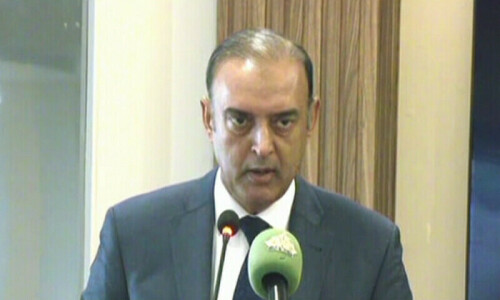CHILDREN are vulnerable and dependent. It is on us as adults to understand the consequences of the power we have over them. While we want the best for our children, being a supportive parent who helps their child build a healthy self-esteem takes effort. Sometimes, it’s not what you say, but how you say it.
In young children, self-esteem forms over time, influenced by how adults express opinions and attitudes about a child’s competence or significance. Their behavior towards the child shows how they feel about them, and the child then tunes into the adult’s opinion. Eventually, the child’s self-evaluations begin to match the adult’s attitudes.
Think of children as a computer programme. The data you put in creates the product. The quality of the product then, would depend on what is being fed in, through words, facial expressions, body language, and actions. If an adult of significance to the child tells them that they see them as thoughtful, competent, and enjoyable, their self-esteem grows.
This data can reinforce positive self-perceptions, and can also dismantle them. If an adult tells a child to stop yapping (‘you talk too much’) or a parent tells their children not to bother them (‘can’t you see I’m busy?’), the building blocks of their self-esteem are at risk of damage. Demeaning and negative attitudes are absorbed by children, colouring their self-evaluation.
Consider the practices that affect a child’s self-esteem.
Children think of themselves positively when adults offer acceptance and provide unconditional positive regard, which doesn’t require the child to earn interest, time, or concern and is given freely without conditions. It doesn’t mean accepting everything a child does. We must help children develop a clear set of values so hurting others, putting oneself in danger, and destroying property are unacceptable. Negative emotions should be accepted, but expressing them irresponsibly should not. This isn’t about abandoning the adult and child dynamic, but about becoming conscious of how you communicate to get the results you want in the short term, without losing sight of what enables the child’s success in the long term.
We live in an era where ‘mindfulness’ is sought by adults to resolve issues and approach their life in a fulfilling way. To evolve into a more supportive adult, we need to be more ‘mindful’ of tone, language, expression and behaviour, especially in interactions with children just learning their way around the world. Imagine a giant towering over you. Understand that you, as an adult are exactly that for a child, bigger, stronger, more powerful, and they do not yet know how to navigate such a dynamic.
Consider the practices that affect a child’s self-esteem. Supportive adults use strategies that enhance self-esteem. Child development research shows that positive discipline is related to higher levels of compliance, helpfulness and lowered aggression. Negative discipline, predicated on control, punishment, humiliation, and sarcasm dilutes a child’s self-confidence, spawning feelings of inadequacy.
Supportive adults establish reasonable limits, state them well and enforce them firmly but kindly. Realistic limits express an adult’s support that helps the child gradually internalise the limits set out by adults and develop self-control. In the process, they view themselves as competent because they understand the reasoning for the limit. Poorly defined limits (which can either be non-existent or excessive) don’t help children because they have no way of knowing whether one’s behaviour is genuinely appropriate or not; they are left to guess and often guess wrong.
Children have a healthier self-esteem when they are empowered to assume responsibilities at home, indicating their importance to the family. If time isn’t taken to help children understand autonomy, without specifying tasks with no real consequences for failing to do them, it clouds the importance of responsibility. This manifests later when children don’t hold themselves accountable for hurting someone or damaging property.
Our irrepressible need to protect children often makes us try to protect them from their own negative feelings. However, denying them can imply to the child that they are defined by their feelings. Instead of dismissing a child’s unpleasant emotions (eg anxiety, jealousy), they must be acknowledged and guided through them, with it being clear that they are still worthy of love.
Supportive adults express genuine interest in children and their activities. Through this, the adult communicates that the child is worthy of attention. Children sense when someone would rather be elsewhere, and research shows no significant difference between the time that parents of children with low and high self-esteem spend together.
Preparing well-adjusted children with healthy self-esteem is a complex journey. Mistakes are inevitable. But with some reflection, adults can learn from them and the children around them will be better off for it.
The writer is an early childhood specialist.
Published in Dawn, August 9th, 2021











































